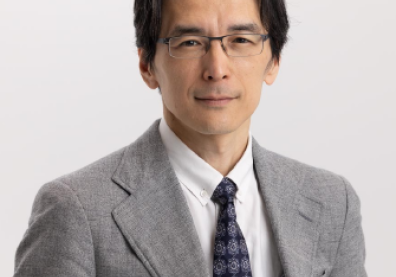The middle Voice and the question of responsibility

Communication followed by half-hour discussion with:
Mr. Kôichirô KOKUBUN (Graduate School of Arts and Scienes, The University of Tokyo)
"Active" and "passive" are the main categories we use to describe our actions. When we perform something, we are considered active. When we undergo something, or have something done to us, we are considered passive. Yet a simple reflection would be enough to challenge these ordinary views. When we think, for example, are we really the ones doing the thinking? Wouldn't it be more accurate to say that, fortunately or unfortunately, the thought process is triggered by something in our mind? If so, it would be better to say: "Thinking is taking place inside me" instead of "I'm thinking".
This kind of reformulation can apply not only to the movement of the mind, but also to physical movement. When we walk, our act is determined by many elements. In this case, "the act of walking is being performed in me" would be the appropriate formulation that should replace "I walk". In fact, similar reflections have been made by many philosophers.
In the 17th century, Spinoza denied the idea that the will is the motor of human action. Sigmund Freud proposed the idea of the unconscious. Among twentieth-century philosophers, Martin Heidegger and Gilles Deleuze emphasized the passive nature of thought. Today, neuroscientists are discovering what actually happens when we take action. Clearly, the categories "active" and "passive" are not sufficient to describe our actions. Yet we continue to use these categories. Why is this so? It's worth noting that these categories are grammatical. The dichotomy between "active" and "passive" corresponds to that between active and passive voice. What's more, as the French linguist Émile Benveniste makes clear, these dichotomized linguistic categories are not universal, even if they appear to be. Indeed, many languages do not have this opposition, and the opposition that the Indo-European language originally had in its verbal form was not that between active and passive voice, but between active and middle voice. This opens up the possibility of examining another category to describe our actions: the one that has disappeared from the foreground of our language. But the difficulty here is that, as Benveniste points out, every attempt to define the middle voice has failed. The reason for this must be studied in detail. That's why we're concentrating on Benveniste's definition, which is that in the opposition between the active voice and the middle voice, what counts is whether the subject is outside or inside the process of the action indicated by the verb. Guided by this definition, this talk will attempt to see why the middle voice lost its leading role and how subject and action were conceived in the world of the middle voice.
For the Zoom link, please contact this address.